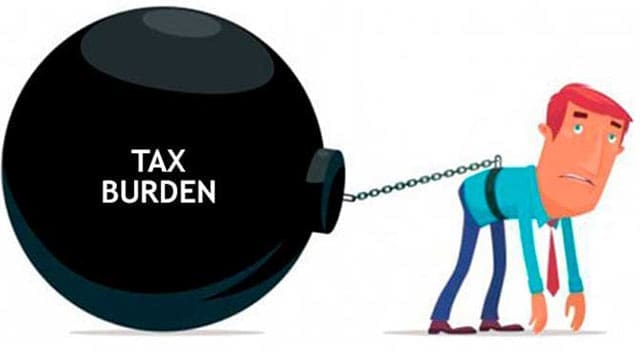By Charles Lammam
and Hugh MacIntyre
The Fraser Institute
While the final outcome of B.C.’s election is far from certain, it’s worth considering what a minority government could mean for provincial tax policy.
As things stand, a majority of MLAs headed to Victoria belong to parties committed to raising economically-damaging taxes. This could spell trouble for British Columbia’s tax competitiveness and the province’s economic prospects.
The province’s leaders would do well to prioritize the economic well-being of British Columbians over party politics.
The election platforms of the NDP and Greens propose hiking B.C.’s general corporate tax rate and top personal tax rate, while the Liberals support the status quo on these two key taxes. In the context of a Liberal minority government, the NDP and Greens would likely pressure the Liberals to acquiesce to their demands. But even if the Liberals resist, the status quo is problematic.
B.C.’s overall business taxes are uncompetitive in Canada and internationally. And the province could become less competitive on personal taxes, particularly if rates rise and President Donald Trump enacts his proposed tax plans in the U.S.
B.C. has one of the highest overall tax rates on new investment in Canada and the developed world. While B.C. may have a lower corporate income tax rate than other provinces, this is only one of many factors that affect the overall taxation of new investment.
The main driver of B.C.’s high overall rate is the provincial sales tax (PST), which taxes business inputs (machines, equipment, materials, energy and other items) used by entrepreneurs to produce and sell their goods and services. This significantly raises the cost of investment in the province, making the PST a particularly damaging tax – an issue none of the parties propose to do anything meaningful about.
The high tax on investment is a contributing factor to why B.C. has the third lowest investment level in Canada and why investment per worker in B.C. is just three-quarters of the average in industrialized countries.
This means B.C.’s standard of living is less than it could be. When businesses invest in machinery, equipment and technology, workers can produce more and create higher-valued output for each hour they work. This increased productivity ultimately leads to higher wages and living standards.
Investment also creates jobs and opportunities, and leads to new and improved products and services that better people’s lives. By many measures, investment helps propel economic well-being.
Yet the NDP and Green platforms propose to further discourage investment by increasing the corporate tax rate (currently at 11 percent). The Liberal plan to largely stick to the status quo on business taxes is also unhelpful, particularly in light of a potential major corporate tax cut in the U.S.
The NDP and Greens also want to raise the carbon tax – the NDP supports the federal mandate to increase the tax from $30 to $50 per tonne. The Greens call for a $70 per tonne carbon tax. Raising the carbon tax, especially without offsetting tax reductions elsewhere, will increase the cost of doing business in B.C. Consumers will pay indirectly as higher production and transportation costs drive up consumer prices, and directly as the cost of consuming gasoline and natural gas goes up.
B.C.’s top personal income tax rate is 47.7 percent after accounting for federal taxes. That top rate fares well compared to other provinces but is decidedly uncompetitive with most of the U.S., including neighbouring Washington State, which has no state-level personal income tax.
The NDP and Greens want to push B.C.’s top rate to around 50 percent. Again, even the Liberal’s support for the status quo will erode tax competitiveness if the U.S. cuts its personal tax rates. Raising the top rate will discourage economic activity in the province, making it more difficult to attract and retain top talent, including entrepreneurs and business professionals.
So far, the election results don’t bode well for B.C.’s tax competitiveness. Hopefully, MLAs will prioritize the prosperity of British Columbians over their party’s political aspirations.
Charles Lammam is director of fiscal studies and Hugh MacIntyre is policy analyst at the Fraser Institute.
Charles and Hugh are Troy Media contributors. Why aren’t you?
The views, opinions and positions expressed by columnists and contributors are the author’s alone. They do not inherently or expressly reflect the views, opinions and/or positions of our publication.




